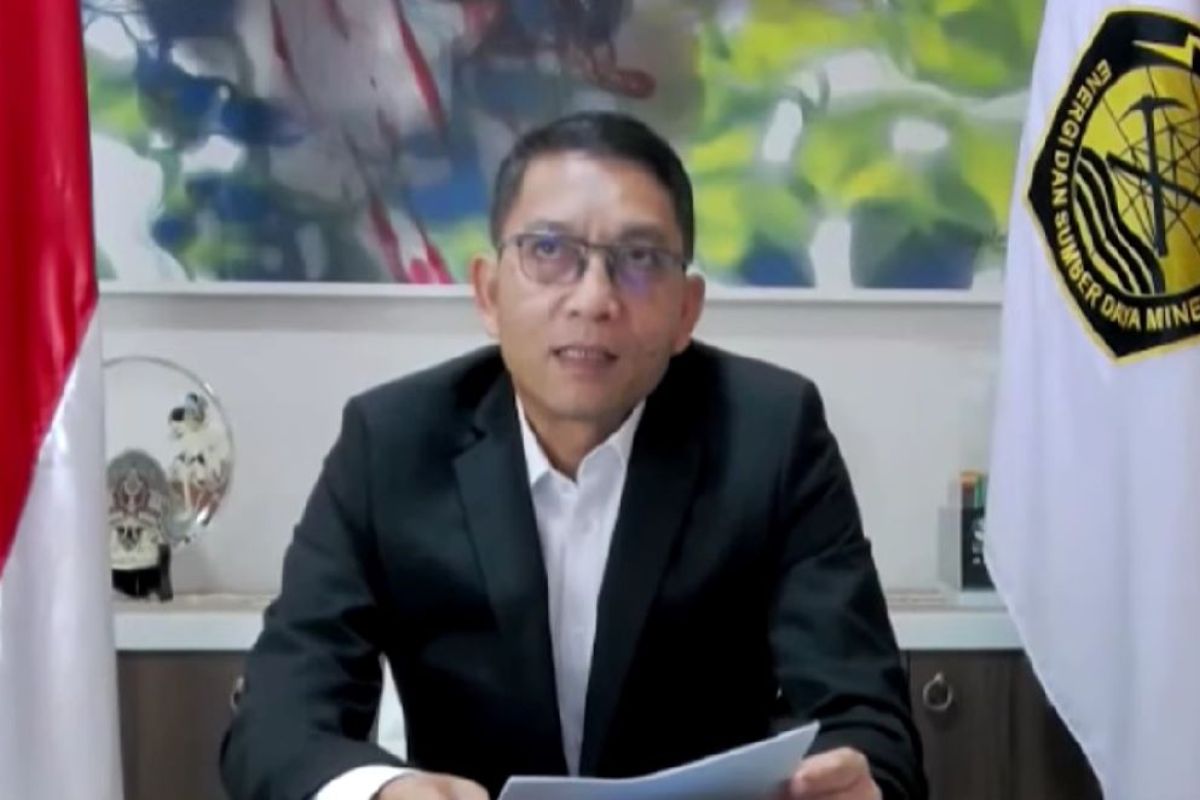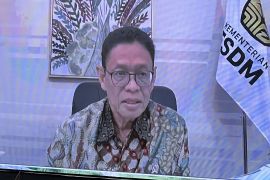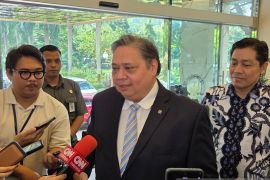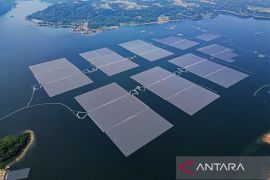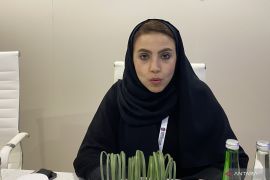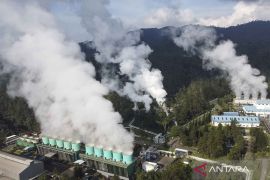"During the energy transition process, the development of fossil energy (sources), including natural gas, will be accelerated," Secretary General and Acting Director General of Oil and Gas at the Ministry of Energy and Mineral Resources Dadan Kusdiana stated here on Tuesday (Dec 10).
In contrast to coal and oil, he noted that natural gas generates significantly lower carbon emissions during combustion.
"Our gas production will increase in the next two to three years. Gas will be the main energy (source) during the transition period until net zero emissions are achieved by 2060," Dadan noted.
He explained that natural gas can also be a clean energy source if the process applies carbon capture and storage (CCS) technology.
"Ongoing gas field development projects will also implement carbon capture and storage technology, such as in the Masela and Tangguh blocks and other gas fields," he remarked.
In addition, natural gas is useful as a raw material for the fertilizer industry.
Dadan emphasized the pivotal significance of natural gas, asserting its critical importance in ensuring domestic energy stability, providing essential raw materials for fertilizer production, and supporting national objectives of food self-sufficiency, household energy needs, and transportation fuel requirements.
Furthermore, natural gas is also one of the mainstays to support the Astacita Vision initiated by President Prabowo Subianto in realizing energy security and achieving the target of eight percent economic growth.
"Therefore, the government will continue to encourage increased utilization of domestic natural gas in order to improve the competitiveness of the domestic industry through a certain natural gas price policy," Dadan explained.
The Upstream Oil and Gas Regulatory Task Force (SKK Migas) highlighted the concrete example of efforts to accelerate the monetization of natural gas reserve findings in the Geng North-1 gas field and North Ganal block.
“Discovered in 2023, the Geng North (gas field) is a game changer. It obtained approval for the field development plan from the government in August 2024, or in only 10 months, and the development project is targeted to be onstream in 2027," the task force’s Head of the Field Development Department, Arya Disiyona, stated.
In addition to accelerating the approval and licensing processes, he explained that SKK Migas and the government provide various incentives to upstream oil and gas Cooperation Contract Contractors (KKKS), so the economics of gas field development projects are more attractive.
"The types of incentives that will be given to KKKS are adjusted to existing regulations," he added.
Meanwhile, Senior Manager of Gas Commercial & Monetization of PT Pertamina Hulu Energi Dani Jatnika stated that based on the direction of SKK Migas and the government, gas production from the Masela block—one of Indonesia's gas giants—will be prioritized to meet domestic needs.
"We are not the operator of the Masela block. We are just sharing information. According to the POD and direction from the government and SKK Migas, 40 to 60 percent of Masela Block's gas production will be allocated for domestic use,” he remarked.
Furthermore, he explained that Inpex, as the operator of the Masela block, is currently in discussions with other potential domestic buyers, such as state-owned electricity giant PLN and state-owned gas distribution company PGN.
Related news: Indonesia aware of importance of dams for food, energy security
Related news: Palm oil sustainability key to energy security goals: Ombudsman
Related news: Indonesia's energy security in resilient category: ESDM
Translator: Faisal Yunianto, Yashinta Difa
Editor: Azis Kurmala
Copyright © ANTARA 2024
